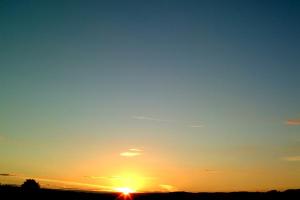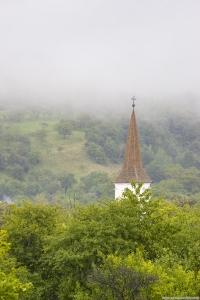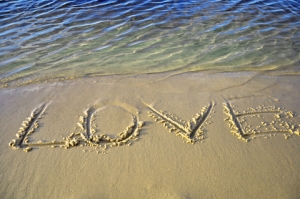10. Gospel– This word almost always refers to writings about the life of Jesus, more specifically, the canonical writings of Matthew, Mark, Luke, and John. Its original meaning however is much more broad. It literally means “good news”. Now for many of us these writings of the New Testament are indeed good news. Yet, for others, it could be the Hebrew Bible, the Quran, the works of Maria Rainer Rilke or the “Big Book” of Alcoholics Anonymous. In other words, what is good news to you, that you use to build your life around. What is your gospel?
9. Heretic– The Roman Catholic church has, over the centuries, given this word a new definition. Its current definition means those who hold unorthodox or controversial beliefs or opinions which differ from that of the official dogma of the Roman Catholic Church. However, in its original form, the word, from its Greek roots “hairetikos” to its Latin and early English and French derivations, simply means “able to choose”. So, a heretic, is one who is able to choose what he or she believes. A wonderfully democratic term turned slander.
8. Agnostic– one who believes that truth claims about the existence or non-existence of God are in fact unknowable. They don’t know. They doubt. While I am not an agnostic, I believe in God, I think that agnostics have been given a bad rap. People scoff when they speak of a friend or co-worker that is agnostic, like there is something weak or deficient in such a stance. Yet, I have faith, but sometimes I have doubt. When I have doubt, I guess one could say I was feeling agnostic. Lacking certainty is not always such a bad thing. And it is certainly not a stagnant thing.
7. Sin– OK, I could write a tome about this one. I know some of my more evangelical brothers and sisters will get their panties in a bit of a twist here, sin looming large (I’m thinking of Jonathan Edwards dangling a spider over a boiling cauldron, like God dangling our souls over the pit fires of hell). But I can berate myself just fine, perhaps too fine in fact and I don’t think God wants to get in on the fun. Sin simply means “missing the mark”. In most cases, in our day to day living, it’s simply means we are human. We can dust ourselves off, and continue to strive to do and be better (without shame and guilt). Just like I don’t want somebody “shoulding” on me, I don’t want someone sinning me to death either.
6. Religion- I don’t want to beat a dead horse. I mean, after all, hasn’t this word been bludgeoned enough. But, this word, which has come to represent differences and divisiveness was originally just a verb, religio, meaning “bringing together that which is separated”. So, all I’m gonna say is, huh?
 5. Salvation– OK, first we’ve got all that hell stuff to contend with. Eternal damnation sounds really scary and I don’t want it to happen to me. A lot of folk want to give you a formula, words to recite, and then you’re good to go. You’re saved. Salvation is then nothing more than a deliverance from sin. But salvation is more beautiful and subtle than that, the etymological meaning of the word is health. In early New Testament readings, it meant to restore you to spiritual good health, to make you whole.
5. Salvation– OK, first we’ve got all that hell stuff to contend with. Eternal damnation sounds really scary and I don’t want it to happen to me. A lot of folk want to give you a formula, words to recite, and then you’re good to go. You’re saved. Salvation is then nothing more than a deliverance from sin. But salvation is more beautiful and subtle than that, the etymological meaning of the word is health. In early New Testament readings, it meant to restore you to spiritual good health, to make you whole.
4. Righteous– This word mostly gets a negative connotation, as we tend to immediately think self-righteous, which obviously no one likes. Being righteous is characterized by virtue and moral soundness and sense of social justice. A true righteous person is a wonder to behold.
3. Tolerance-Many religious leaders nowadays talk of tolerating those of other faiths, as if that is enough. I’ve never met a deeply spiritual person who didn’t openly inquire about another’s faith, who looked to appreciate some aspect of it, or its encourage its blessings.
2. Evangelical-Unless you are an evangelical, you are very likely leery just hearing the word. Yet the word is from the Greek “euangelos”, meaning a messenger or angel bringing good news. It’s too bad, because I’m not too confident that we can bring this one back to its original, more open and joyous meaning.
1. Liberal– The religious right, the political right, the conservative whatevers have suceeded in the last several decades in making the word liberal a dirty word. It permeates all aspects of our public discourse. If you are a political or religious liberal, you are somehow bereft of moral values, ethics, or for that matter, common sense. This is a terrible injustice. Liberal, liberalis (Latin) means to be free or to be free and let others be free. It was the founding paradigm of our nation, Thomas Jefferson wrote a declaration about it. We the people need to take this word back and give it the honor it so rightly deserves.
Book of the Day: Amazing Grace: A Vocabulary of Faith by Kathleen Norris
Quote from the Book of the Day: “I find it sad to consider that belief has become a scary word, because at its Greek root, “to believe” simply means “to give one’s heart to”. Thus, if we can determine what it is we give our hearts to, then we will know what it is we believe.”
 It was Socrates who said that “An unexamined life is not worth living.” Of course, being a philosopher in the 4 century B.C.E., one didn’t have Voice Mail, Email, Facebook, Twitter, and Super Bowl predictions amidst a countless sea of daily to-do’s clamoring to distract you from this special task.
It was Socrates who said that “An unexamined life is not worth living.” Of course, being a philosopher in the 4 century B.C.E., one didn’t have Voice Mail, Email, Facebook, Twitter, and Super Bowl predictions amidst a countless sea of daily to-do’s clamoring to distract you from this special task.












